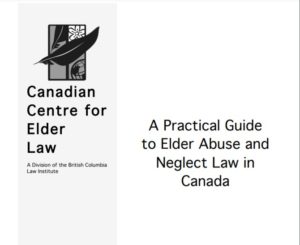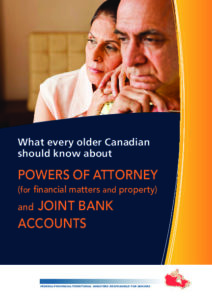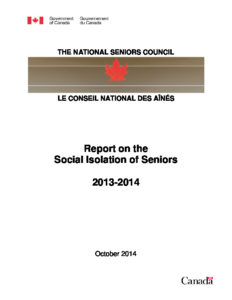Choose a topic from the categories below.
2SLGBTQ+
This r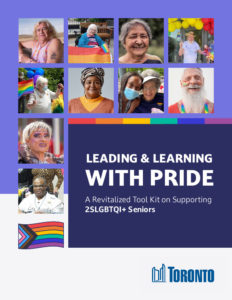 evised Tool Kit, is hosted by the City of Toronto’s Seniors Services and Long-Term Care (SSLTC) division.
evised Tool Kit, is hosted by the City of Toronto’s Seniors Services and Long-Term Care (SSLTC) division.
This Tool Kit strives to advance respectful, inclusive and affirming care for 2SLGBTQI+ Seniors in Toronto by: 1) Building individual knowledge and skills among SSLTC staff and other service providers in the delivery of support to 2SLGBTQI+ Seniors and 2) Building organizational capacity among SSLTC and other seniors support organizations in the creation of inclusive environments for 2SLGBTQI+ Seniors.
While it includes useful examples and lessons from the 10 City long-term care homes and various community programs, this resource is intended for any and all service providers and care partners working to support 2SLGBTQI+ Seniors. Content in this Tool Kit might also be relevant to those providing support
and allyship to 2SLGBTQI+ Seniors, such as family, friends, community members, caregivers, and substitute decision makers.
Download Report in: English
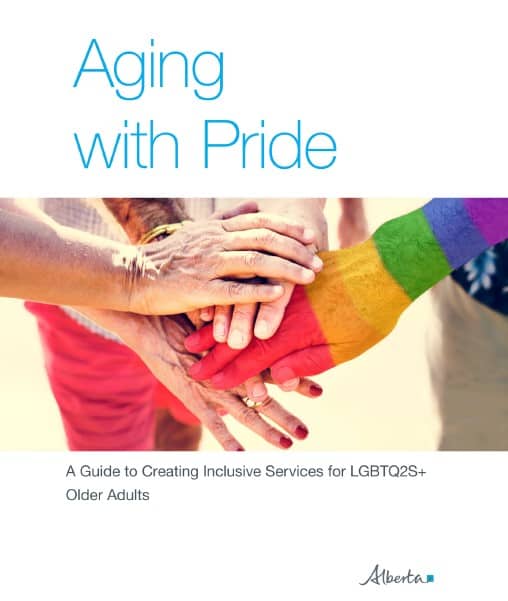 The guide is an educational resource to help senior-serving organizations increase awareness of LGBTQ2S+ seniors’ issues and needs and identify concrete actions organizations can take to be more inclusive and affirming. This guide is for any organization that works with seniors as volunteers, staff, clients, residents or participants. This includes seniors’ centres and associations, community outreach and frontline service providers, and housing providers.
The guide is an educational resource to help senior-serving organizations increase awareness of LGBTQ2S+ seniors’ issues and needs and identify concrete actions organizations can take to be more inclusive and affirming. This guide is for any organization that works with seniors as volunteers, staff, clients, residents or participants. This includes seniors’ centres and associations, community outreach and frontline service providers, and housing providers.
Download Report in: English
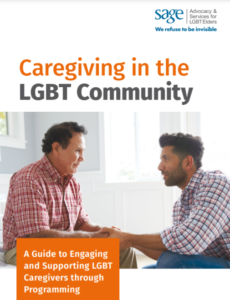 This guide provides an overview of caregiving in the LGBT community, and specific ideas, lessons learned and best practices for expanding programming to reach and include LGBT caregivers and those caring for LGBT older adults. It’s applicable to both those serving LGBT people but not caregivers, and to those serving older adult/caregivers but not LGBT people. A list of resources, both for service providers and for caregivers themselves, is included.
This guide provides an overview of caregiving in the LGBT community, and specific ideas, lessons learned and best practices for expanding programming to reach and include LGBT caregivers and those caring for LGBT older adults. It’s applicable to both those serving LGBT people but not caregivers, and to those serving older adult/caregivers but not LGBT people. A list of resources, both for service providers and for caregivers themselves, is included.
Download Report in English
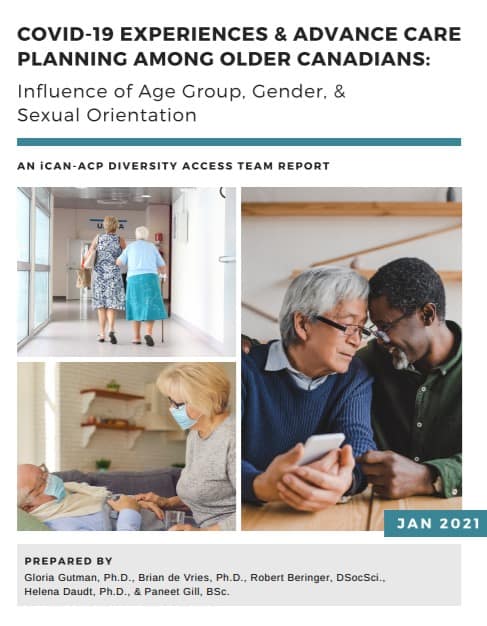 This study focuses on increasing access, uptake, and impact of Advance Care Planning (ACP) among frail elderly Canadians (LGBT, Chinese and South Asian) across the continuum of care – i.e., from primary care through to long term care and hospital care. The examination of COVID-19 (or any disaster) as a potential stimulus for ACP is novel.
This study focuses on increasing access, uptake, and impact of Advance Care Planning (ACP) among frail elderly Canadians (LGBT, Chinese and South Asian) across the continuum of care – i.e., from primary care through to long term care and hospital care. The examination of COVID-19 (or any disaster) as a potential stimulus for ACP is novel.
Download Report in: English
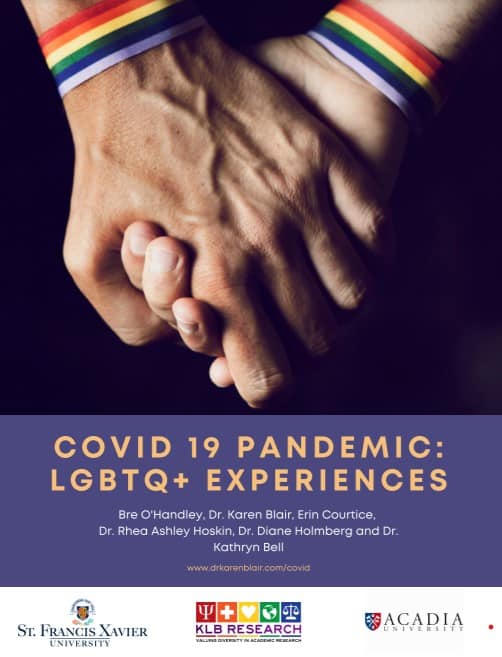 The current report summarizes the intake findings of the COVID-19 Interpersonal Coping study. The study surveyed 2266 Canadians about their mental and physical well-being, economic stability, COVID-19 related behaviours and concerns, help seeking behaviours, perceived social support and intimate partner violence experiences.
The current report summarizes the intake findings of the COVID-19 Interpersonal Coping study. The study surveyed 2266 Canadians about their mental and physical well-being, economic stability, COVID-19 related behaviours and concerns, help seeking behaviours, perceived social support and intimate partner violence experiences.
Download Report in: English
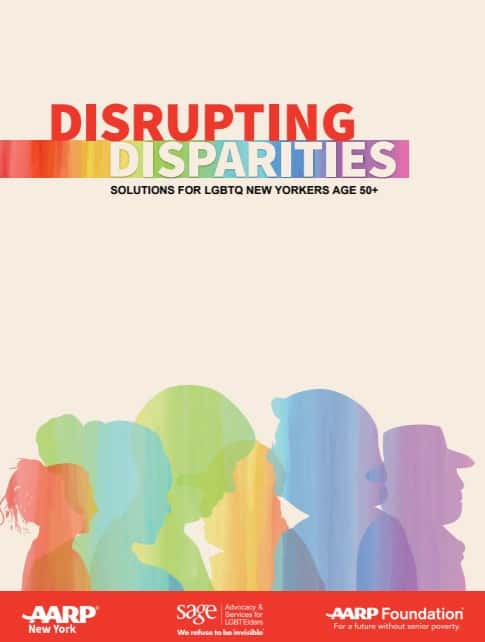 Of the estimated 800,000 LGBTQ adults in New York State, nearly one-third (28%) are over the age of 50. Although a key part of New York State’s rapidly growing elder population, LGBTQ older people remain largely invisible and face unique challenges in aging. This report seeks to:1) identify the disparities faced by New York State’s 50-plus LGBTQ population; and 2) develop concrete policy solutions to address these disparities.
Of the estimated 800,000 LGBTQ adults in New York State, nearly one-third (28%) are over the age of 50. Although a key part of New York State’s rapidly growing elder population, LGBTQ older people remain largely invisible and face unique challenges in aging. This report seeks to:1) identify the disparities faced by New York State’s 50-plus LGBTQ population; and 2) develop concrete policy solutions to address these disparities.
Download Report in: English | French
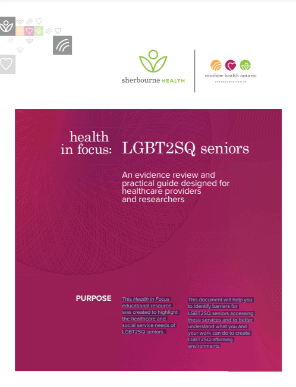 This Health in Focus educational resource was created to highlight the healthcare and social service needs of LGBT2SQ seniors. This document will help you to identify barriers for LGBT2SQ seniors accessing these services and to better understand what you and your work can do to create LGBT2SQ-warming environments.
This Health in Focus educational resource was created to highlight the healthcare and social service needs of LGBT2SQ seniors. This document will help you to identify barriers for LGBT2SQ seniors accessing these services and to better understand what you and your work can do to create LGBT2SQ-warming environments.
Download Report in: English
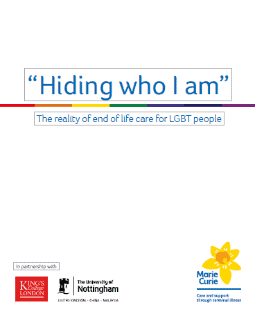 LGBT people experience significant barriers to getting palliative care when they need it. This report by Marie Curie explores why.
LGBT people experience significant barriers to getting palliative care when they need it. This report by Marie Curie explores why.
Download Report in: English
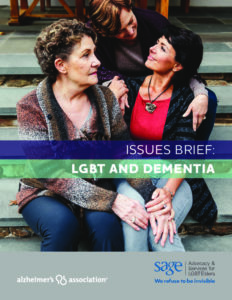 This report outlines these disparities in health, wealth, isolation and trust that make reaching LGBT older adults with Alzheimer’s disease particularly challenging, while also highlighting their tremendous resilience and ability to thrive when provided with appropriate resources and supports.
This report outlines these disparities in health, wealth, isolation and trust that make reaching LGBT older adults with Alzheimer’s disease particularly challenging, while also highlighting their tremendous resilience and ability to thrive when provided with appropriate resources and supports.
Download Report in English
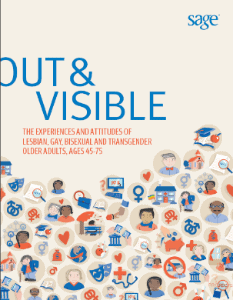 This study explores the aging realities of LGBT people, as well as their fears, beliefs, behaviors and aspirations in areas such as healthcare, finance and retirement, support systems, housing and sources of information. SAGE also recognizes that this country has grown increasingly diverse in its racial and ethnic composition, and that women and transgender people (as two examples) often require unique supports. Thus, this study takes a closer look at the extent to which African Americans, Hispanics, women and transgender people have unique considerations within a diverse LGBT market.
This study explores the aging realities of LGBT people, as well as their fears, beliefs, behaviors and aspirations in areas such as healthcare, finance and retirement, support systems, housing and sources of information. SAGE also recognizes that this country has grown increasingly diverse in its racial and ethnic composition, and that women and transgender people (as two examples) often require unique supports. Thus, this study takes a closer look at the extent to which African Americans, Hispanics, women and transgender people have unique considerations within a diverse LGBT market.
Download Report in: English
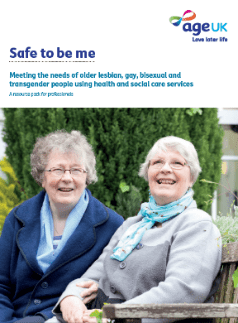 This survey produces critically important data to understand the social attitudes that reinforce this discrimination and isolation, an invaluable first step toward breaking the invisibility and focusing attention on the needs of these highly vulnerable elders. Many respondents live in environments that are hostile to sexual orientation or gender identity minorities. SAGE’s participation in this year’s survey brings a generational lens to the data for the first time.
This survey produces critically important data to understand the social attitudes that reinforce this discrimination and isolation, an invaluable first step toward breaking the invisibility and focusing attention on the needs of these highly vulnerable elders. Many respondents live in environments that are hostile to sexual orientation or gender identity minorities. SAGE’s participation in this year’s survey brings a generational lens to the data for the first time.
Download Report in: English
SAGE Global Report 2018: Public Attitudes Toward Aging Sexual and Gender Minorities Around the World
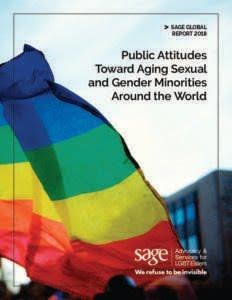 This survey produces critically important data to understand the social attitudes that reinforce this discrimination and isolation, an invaluable first step toward breaking the invisibility and focusing attention on the needs of these highly vulnerable elders. Many respondents live in environments that are hostile to sexual orientation or gender identity minorities. SAGE’s participation in this year’s survey brings a generational lens to the data for the first time.
This survey produces critically important data to understand the social attitudes that reinforce this discrimination and isolation, an invaluable first step toward breaking the invisibility and focusing attention on the needs of these highly vulnerable elders. Many respondents live in environments that are hostile to sexual orientation or gender identity minorities. SAGE’s participation in this year’s survey brings a generational lens to the data for the first time.
Download Report in: English
Ageism
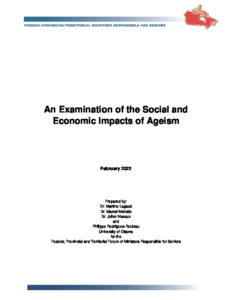 The report, An Examination of the Social and Economic Impacts of Ageism, examines social and economic impacts of ageism through a review of literature to better understand a) the impacts of ageism related to employment2, health and health care, social inclusion, safety and security, media and social media; and b) initiatives to counteract age-based discrimination against older adults. Prepared for the Federal, Provincial and Territorial Forum of Ministers Responsible for Seniors, February 2022.
The report, An Examination of the Social and Economic Impacts of Ageism, examines social and economic impacts of ageism through a review of literature to better understand a) the impacts of ageism related to employment2, health and health care, social inclusion, safety and security, media and social media; and b) initiatives to counteract age-based discrimination against older adults. Prepared for the Federal, Provincial and Territorial Forum of Ministers Responsible for Seniors, February 2022.
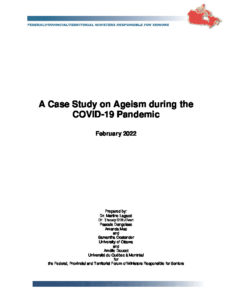 The study, A Case Study on Ageism during the COVID-19 Pandemic, aims to understand how older adults and the process of aging were depicted by the Canadian media, academics, older adults (associations of older adults), as
The study, A Case Study on Ageism during the COVID-19 Pandemic, aims to understand how older adults and the process of aging were depicted by the Canadian media, academics, older adults (associations of older adults), as
well as government representatives themselves through the first and second waves of the COVID-19 pandemic. Prepared for the Federal, Provincial and Territorial Forum of Ministers Responsible for Seniors, February 2022.
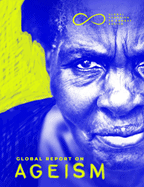 The Global report on ageism outlines a framework for action to reduce ageism including specific recommendations for different actors (e.g. government, UN agencies, civil society organizations, private sector). It brings together the best available evidence on the nature and magnitude of ageism, its determinants and its impact. It outlines what strategies work to prevent and counter ageism, identifies gaps and proposes future lines of research to improve our understanding of ageism.
The Global report on ageism outlines a framework for action to reduce ageism including specific recommendations for different actors (e.g. government, UN agencies, civil society organizations, private sector). It brings together the best available evidence on the nature and magnitude of ageism, its determinants and its impact. It outlines what strategies work to prevent and counter ageism, identifies gaps and proposes future lines of research to improve our understanding of ageism.
Download Report in: English | French
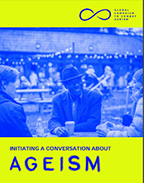 This guide is designed to help everyone start a conversation about ageism—whether at home, at work, in the classroom, or in the policy-making space. Ageism is present in the way we think, feel and act towards others and ourselves according to age, whether we are conscious of it or not. It is everywhere, in our institutions, relationships and ourselves.
This guide is designed to help everyone start a conversation about ageism—whether at home, at work, in the classroom, or in the policy-making space. Ageism is present in the way we think, feel and act towards others and ourselves according to age, whether we are conscious of it or not. It is everywhere, in our institutions, relationships and ourselves.
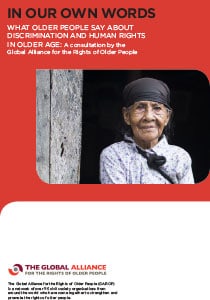 This report is a consultation by the Global Alliance for the Rights of Older People (GAROP) in which older people talk about the ageism, discrimination and denial of human rights that they are subjected to in their everyday life. Over two thousand people from 50 countries took part in a consultation to hear how older people are being discriminated against, what impact this has on their lives and why they think this is happening. Whilst a very small number described being treated well, the vast majority said they were treated differently and discriminated against because of their older age. They described being ignored, dismissed, excluded and subjected to violence and abuse.
This report is a consultation by the Global Alliance for the Rights of Older People (GAROP) in which older people talk about the ageism, discrimination and denial of human rights that they are subjected to in their everyday life. Over two thousand people from 50 countries took part in a consultation to hear how older people are being discriminated against, what impact this has on their lives and why they think this is happening. Whilst a very small number described being treated well, the vast majority said they were treated differently and discriminated against because of their older age. They described being ignored, dismissed, excluded and subjected to violence and abuse.
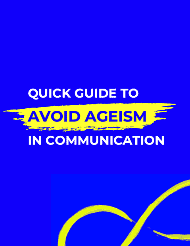 Language and images convey meaning, which feed assumptions and judgements that can lead to ageism. The way we frame communications also affects how people think, feel and act towards different age groups. This short guide, produced as a part of the Global Campaign to Combat Ageism, aims to help you improve your communication efforts by avoiding ageism in the messages and images you use
Language and images convey meaning, which feed assumptions and judgements that can lead to ageism. The way we frame communications also affects how people think, feel and act towards different age groups. This short guide, produced as a part of the Global Campaign to Combat Ageism, aims to help you improve your communication efforts by avoiding ageism in the messages and images you use
Download Report in: English | French
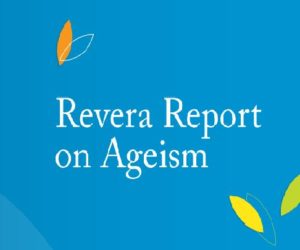 The Revera Report on Ageism probed Canadians aged 18-32 (Gen Y), 33-45 (Gen X), 46-65 (Boomers), 66-74 (Seniors) and 75+ (Older Seniors) to find out their attitudes about aging and to gauge their level of awareness and experience with ageism.
The Revera Report on Ageism probed Canadians aged 18-32 (Gen Y), 33-45 (Gen X), 46-65 (Boomers), 66-74 (Seniors) and 75+ (Older Seniors) to find out their attitudes about aging and to gauge their level of awareness and experience with ageism.
The goals of the research are multifaceted: to draw attention to the misconceptions and stereotypes surrounding older people; to inform and advance dialogue around the issue of ageism; to give voice to the views of Canadians who embrace the positive qualities of being older; and to demonstrate that there are many ways people live their lives to the fullest at every stage of their life.
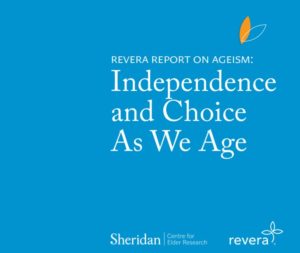 This report explores this issue and examines the roles that independence and choice have in our lives, and specifically delves into the impact of ageism when it comes to providing care and support for older adults. The report identifies a number of troubling warning signs and reveals that many well-intentioned Canadians, through their attitudes and approach to supporting and caring for older adults, are in fact depriving their elders of independence and self-worth.
This report explores this issue and examines the roles that independence and choice have in our lives, and specifically delves into the impact of ageism when it comes to providing care and support for older adults. The report identifies a number of troubling warning signs and reveals that many well-intentioned Canadians, through their attitudes and approach to supporting and caring for older adults, are in fact depriving their elders of independence and self-worth.
Download Report in: English
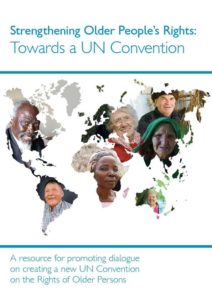 This publication was produced to strengthen understanding and awareness of the need for a Convention on the Rights of Older Persons. It aims to provide the arguments and tools for engaging stakeholders across the globe in debate about older people’s rights and the role of a convention.
This publication was produced to strengthen understanding and awareness of the need for a Convention on the Rights of Older Persons. It aims to provide the arguments and tools for engaging stakeholders across the globe in debate about older people’s rights and the role of a convention.
Download Report in: English
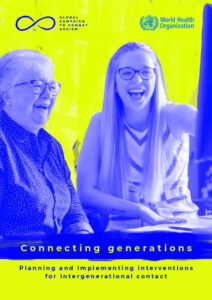 This guide, developed for the campaign, builds on the evidence in the Global report on ageism that interventions for intergenerational contact is one of three strategies that have been proven to work in addressing ageism, together with policy and law and educational interventions.
This guide, developed for the campaign, builds on the evidence in the Global report on ageism that interventions for intergenerational contact is one of three strategies that have been proven to work in addressing ageism, together with policy and law and educational interventions.
Download Report in: English
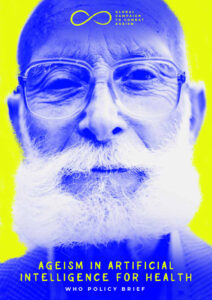
The WHO policy brief Ageism in artificial intelligence for health examines the use of artificial intelligence (AI) in medicine and public health for older people, including the conditions in which AI can exacerbate or introduce new forms of ageism.
The brief presents legal, non-legal and technical measures that can be used to minimize the risk of ageism in AI and maximize AI’s benefits for older people as these technologies become more commonly used across the world.
Download Report in: English
Dementia
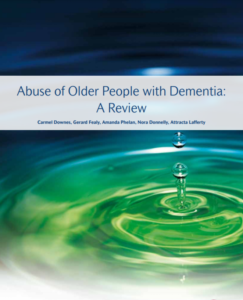 This review of literature collates, analyses and summarises published literature on abuse of community-dwelling older people with dementia, in order to inform future research in this area. The review provides evidence relating to:
This review of literature collates, analyses and summarises published literature on abuse of community-dwelling older people with dementia, in order to inform future research in this area. The review provides evidence relating to:
■ the prevalence and risk factors for the abuse and neglect of older people with dementia.
■ the characteristics of perpetrators who abuse older people with dementia.
■ the means of recognising abuse and neglect of older people with dementia.
■ the strategies for preventing and managing cases of abuse of older people with dementia.
(2013 – Ireland)
Download Report in: English
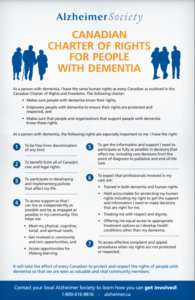 As a person living with dementia, the Charter can help you assert your rights to live free of stigma, benefit from all of Canada’s civic and legal rights, participate in policies that affect you and more. The Charter defines seven explicit rights to empower you to self-advocate as a person living with dementia in Canada. It also ensures that the people and organizations that support you will know and protect your rights. (Developed by the Alzheimer Society of Canada, 2018)
As a person living with dementia, the Charter can help you assert your rights to live free of stigma, benefit from all of Canada’s civic and legal rights, participate in policies that affect you and more. The Charter defines seven explicit rights to empower you to self-advocate as a person living with dementia in Canada. It also ensures that the people and organizations that support you will know and protect your rights. (Developed by the Alzheimer Society of Canada, 2018)
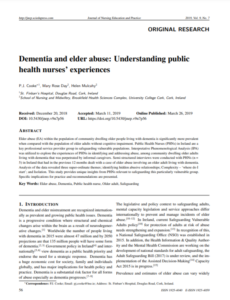 This study provides unique insights from public health nurses in Ireland, relevant to safeguarding this particularly vulnerable group. Specific implications for practice and recommendations are presented. (2019)
This study provides unique insights from public health nurses in Ireland, relevant to safeguarding this particularly vulnerable group. Specific implications for practice and recommendations are presented. (2019)
Download Report in: English
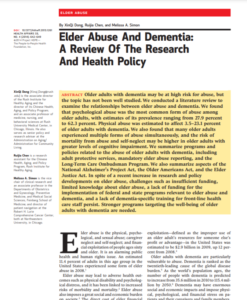 This literature review examines the relationships between elder abuse and dementia. Results reveal many older adults experienced multiple forms of abuse simultaneously, and the risk of mortality from abuse and self-neglect may be higher in older adults with greater levels of cognitive impairment. The paper summarizes programs and policies related to the abuse of older adults with dementia, including adult protective services, mandatory elder abuse reporting, and the Long-Term Care Ombudsman Program and highlights challenges such as insufficient funding, limited knowledge about elder abuse, a lack of funding for the implementation of federal and state programs relevant to elder abuse and dementia, and a lack of dementia-specific training for front-line health care staff persist. (2014)
This literature review examines the relationships between elder abuse and dementia. Results reveal many older adults experienced multiple forms of abuse simultaneously, and the risk of mortality from abuse and self-neglect may be higher in older adults with greater levels of cognitive impairment. The paper summarizes programs and policies related to the abuse of older adults with dementia, including adult protective services, mandatory elder abuse reporting, and the Long-Term Care Ombudsman Program and highlights challenges such as insufficient funding, limited knowledge about elder abuse, a lack of funding for the implementation of federal and state programs relevant to elder abuse and dementia, and a lack of dementia-specific training for front-line health care staff persist. (2014)
Download Report in: English | French
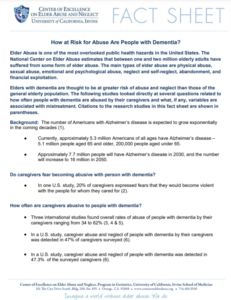 This fact sheet reviews studies that directly asked questions related to how often people with dementia are abused by their caregivers and what, if any, variables are associated with mistreatment. Facts reveal the type of abuse most reported by U.S. caregivers of people with dementia; characteristics associated with mistreatment of people with dementia; and how often caregivers are abusive to people with dementia.
This fact sheet reviews studies that directly asked questions related to how often people with dementia are abused by their caregivers and what, if any, variables are associated with mistreatment. Facts reveal the type of abuse most reported by U.S. caregivers of people with dementia; characteristics associated with mistreatment of people with dementia; and how often caregivers are abusive to people with dementia.
Download Report in: English
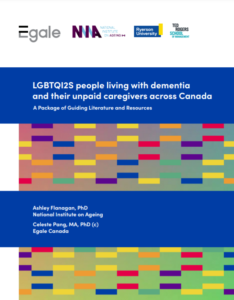 Recognizing the gap in current understandings of living and/or caring within the intersections of LGBTQI2S identities and dementia, Egale Canada and the National Institute on Ageing at Ryerson University teamed up in 2020 to conduct a national research into the experiences of LGBTQI2S people living with dementia, and primary unpaid caregivers of LGBTQI2S people living with dementia.
Recognizing the gap in current understandings of living and/or caring within the intersections of LGBTQI2S identities and dementia, Egale Canada and the National Institute on Ageing at Ryerson University teamed up in 2020 to conduct a national research into the experiences of LGBTQI2S people living with dementia, and primary unpaid caregivers of LGBTQI2S people living with dementia.
Download Report in English
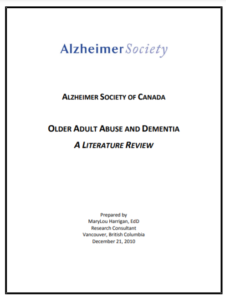 The literature emphasizes that abuse of older adults is a complex social, legal and ethical issue, with multiple dimensions. The literature explores reasons why persons with dementia are at risk for abuse (2010)
The literature emphasizes that abuse of older adults is a complex social, legal and ethical issue, with multiple dimensions. The literature explores reasons why persons with dementia are at risk for abuse (2010)
Download Report in: English
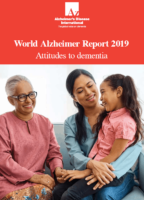 The 2019 World Alzheimer Report, revisits attitudes to dementia and stigma to better understand the role they play and to set a baseline against which we can gauge future changes. This report details the scale of the challenge we face where attitudes to dementia, and specifically stigma, are still a major barrier to people seeking out information, help, advice, support and even a diagnosis; preventing or delaying people from putting plans in place; progressing to a stage of acceptance and being able to adjust to live with dementia.
The 2019 World Alzheimer Report, revisits attitudes to dementia and stigma to better understand the role they play and to set a baseline against which we can gauge future changes. This report details the scale of the challenge we face where attitudes to dementia, and specifically stigma, are still a major barrier to people seeking out information, help, advice, support and even a diagnosis; preventing or delaying people from putting plans in place; progressing to a stage of acceptance and being able to adjust to live with dementia.
Download Report in: English
Disabilities
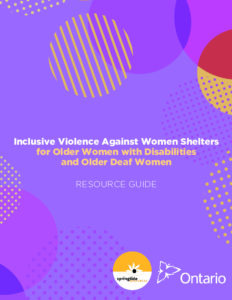 This best practice guide offers information to shelter workers to learn about the nature of violence and barriers older women with disabilities and older Deaf women experience in accessing shelter services, in order to equip shelters to proactively address these issues within the context of their service provision. It is based on findings from a project implemented by Springtide Resources that set out to address the challenges in accessing Violence Against Women (VAW) shelters in Ontario for older Deaf women and older women with disabilities.
This best practice guide offers information to shelter workers to learn about the nature of violence and barriers older women with disabilities and older Deaf women experience in accessing shelter services, in order to equip shelters to proactively address these issues within the context of their service provision. It is based on findings from a project implemented by Springtide Resources that set out to address the challenges in accessing Violence Against Women (VAW) shelters in Ontario for older Deaf women and older women with disabilities.
Download Report in English
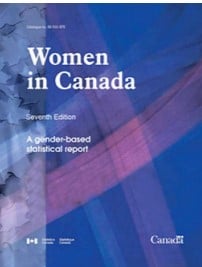 Using a gender-based perspective, the chapter describes the prevalence of disability across age groups, regions, subpopulations, and living arrangements. Furthermore, it examines the specific causes of main condition and types of disabilities experienced; the use of aids, assistive devices, and medications; help needed; and use of public and specialized transit. Lastly, education, employment, and income characteristics of people with disabilities are compared with people without disabilities.
Using a gender-based perspective, the chapter describes the prevalence of disability across age groups, regions, subpopulations, and living arrangements. Furthermore, it examines the specific causes of main condition and types of disabilities experienced; the use of aids, assistive devices, and medications; help needed; and use of public and specialized transit. Lastly, education, employment, and income characteristics of people with disabilities are compared with people without disabilities.
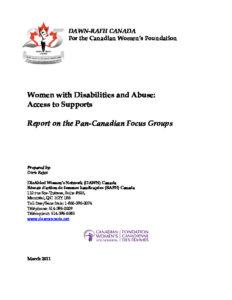 The focus of this research report was to gather information on women with disabilities and Deaf women’s access to abused women’s services, in order that they may gear future investments towards strengthening successful supports and services.
The focus of this research report was to gather information on women with disabilities and Deaf women’s access to abused women’s services, in order that they may gear future investments towards strengthening successful supports and services.
Download Report in: English
Elder Law
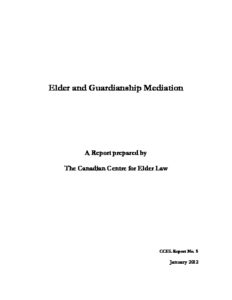 This Canadian Centre for Elder Law Report is the culmination of three years of research and consultation on the complex and overlapping areas of elder mediation and guardianship mediation. The report provides expert guidance in support of changes that need to be made in the province of BC when the existing adult guardianship mediation provisions are proclaimed.
This Canadian Centre for Elder Law Report is the culmination of three years of research and consultation on the complex and overlapping areas of elder mediation and guardianship mediation. The report provides expert guidance in support of changes that need to be made in the province of BC when the existing adult guardianship mediation provisions are proclaimed.
Download Report in: English
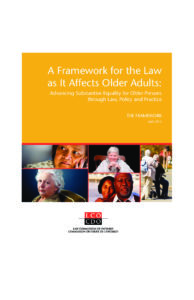 Although older adults make up a growing proportion of Ontario’s population, law and policy-makers may not be fully aware of or always consider the potential effects of their laws and policies on these members of society. These laws and policies include those that directly target older adults, as well as general laws and policies that may affect older persons as part of the general population. The Law Commission of Ontario (LCO) has created a Framework for the Law as it Affects Older Adults to help evaluate new or existing laws, policies and practices and understand their impact on older adults.
Although older adults make up a growing proportion of Ontario’s population, law and policy-makers may not be fully aware of or always consider the potential effects of their laws and policies on these members of society. These laws and policies include those that directly target older adults, as well as general laws and policies that may affect older persons as part of the general population. The Law Commission of Ontario (LCO) has created a Framework for the Law as it Affects Older Adults to help evaluate new or existing laws, policies and practices and understand their impact on older adults.
Download Report in English
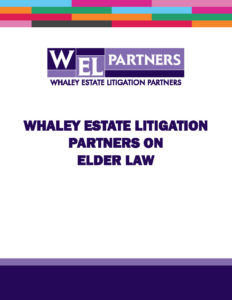 The book addresses the well-known topics of capacity, undue influence, powers of attorney, and guardianship, the book also addresses discrimination against older persons, predatory marriages, and other topics. Prominent among the topics discussed is elder abuse in its various forms, including financial and physical abuse, civil and criminal law remedies to counter abuse, and protection of the elderly. The book also covers end of life decisions and professionalism and ethics in dealing with vulnerable clients and concludes with a number of appendices that contain helpful checklists on elder abuse, undue influence, and capacity, as well as a summary of capacity criteria.
The book addresses the well-known topics of capacity, undue influence, powers of attorney, and guardianship, the book also addresses discrimination against older persons, predatory marriages, and other topics. Prominent among the topics discussed is elder abuse in its various forms, including financial and physical abuse, civil and criminal law remedies to counter abuse, and protection of the elderly. The book also covers end of life decisions and professionalism and ethics in dealing with vulnerable clients and concludes with a number of appendices that contain helpful checklists on elder abuse, undue influence, and capacity, as well as a summary of capacity criteria.
Download Report in English
Ethno-Cultural Communities
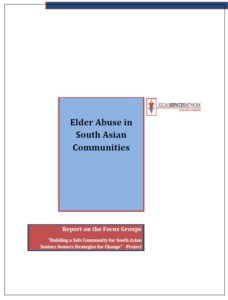 This guide offers practical step-by-step instructions on how to facilitate two interactive workshop series:
This guide offers practical step-by-step instructions on how to facilitate two interactive workshop series:
– Series 1: Family Workshops includes two workshop modules for South Asian seniors and their family members, i.e. their adult children and grandchildren.
– Series 2: Service Provider Workshops includes four modules for service providers who work with seniors and/or those who work in the area of violence prevention and response.
Download Report in English
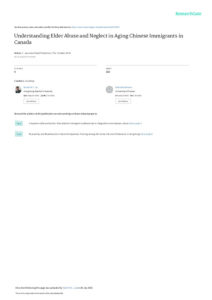 The purpose of this paper is to review and discuss existing literature and available research findings related to understanding elder abuse and neglect in culturally diverse communities, particularly the Chinese immigrant community in Canada. The conceptual understandings of elder abuse are examined, based upon the socio-cultural context and challenges faced by aging Chinese immigrants.
The purpose of this paper is to review and discuss existing literature and available research findings related to understanding elder abuse and neglect in culturally diverse communities, particularly the Chinese immigrant community in Canada. The conceptual understandings of elder abuse are examined, based upon the socio-cultural context and challenges faced by aging Chinese immigrants.
Download Report in: English
Financial Exploitation
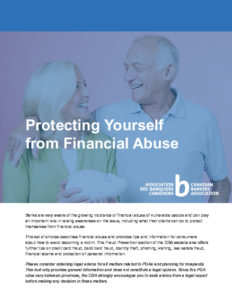 Banks are very aware of the growing incidence of financial abuse of vulnerable people and can play an important role in raising awareness on the issue, including what their clients can do to protect themselves from financial abuse. This set of articles describes financial abuse and provides tips and information for consumers about how to avoid becoming a victim.
Banks are very aware of the growing incidence of financial abuse of vulnerable people and can play an important role in raising awareness on the issue, including what their clients can do to protect themselves from financial abuse. This set of articles describes financial abuse and provides tips and information for consumers about how to avoid becoming a victim.
Download Report in English
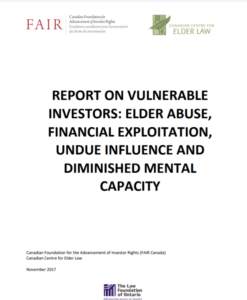 With the significant demographic shift occurring in Canada, issues particularly related to older investors are increasingly coming to the fore. While most older Canadians live independently and are capable of making their own financial decisions, elder financial abuse, undue influence and mental capacity challenges are serious and growing social concerns.
With the significant demographic shift occurring in Canada, issues particularly related to older investors are increasingly coming to the fore. While most older Canadians live independently and are capable of making their own financial decisions, elder financial abuse, undue influence and mental capacity challenges are serious and growing social concerns.
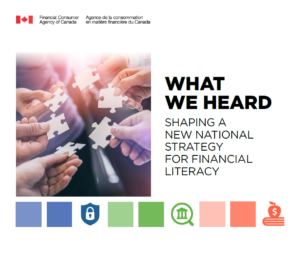 The Financial Consumer Agency of Canada (FCAC) launched the first National Strategy for Financial Literacy in 2015. The strategy was successful in raising awareness of the importance of financial literacy, and it spurred wide-ranging efforts aimed at strengthening Canadians’ financial knowledge, skills and confidence.
The Financial Consumer Agency of Canada (FCAC) launched the first National Strategy for Financial Literacy in 2015. The strategy was successful in raising awareness of the importance of financial literacy, and it spurred wide-ranging efforts aimed at strengthening Canadians’ financial knowledge, skills and confidence.
FCAC renewed the strategy to make sure it reflects new realities and Canadians’ evolving expectations of an increasingly digital financial marketplace. The purpose of this document is to share what they heard during our consultations and provide an early preview and synopsis of our thinking.
Gender Based Violence
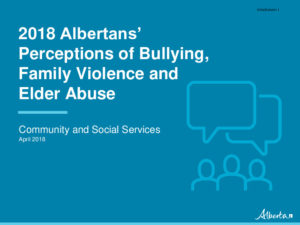 This report measure attitudes and awareness among Albertans regarding bullying, family violence, and elder abuse. Statistical comparisons are also provided to identify the change in attitudes and awareness over time.
This report measure attitudes and awareness among Albertans regarding bullying, family violence, and elder abuse. Statistical comparisons are also provided to identify the change in attitudes and awareness over time.
Download Report in: English
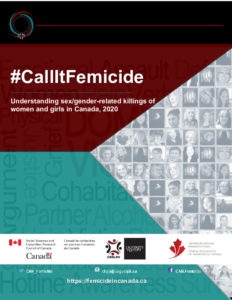 This is the Canadian Femicide Observatory for Justice and Accountability’s third annual #CallItFemicide report. The report focuses on women and girls killed by violence in Canada from January 1 to December 31, 2020. It contains critical information that builds on the earlier and ongoing work on femicide, in Canada and internationally, highlighting current and emerging trends and issues that require further investigation and monitoring in the coming years.
This is the Canadian Femicide Observatory for Justice and Accountability’s third annual #CallItFemicide report. The report focuses on women and girls killed by violence in Canada from January 1 to December 31, 2020. It contains critical information that builds on the earlier and ongoing work on femicide, in Canada and internationally, highlighting current and emerging trends and issues that require further investigation and monitoring in the coming years.
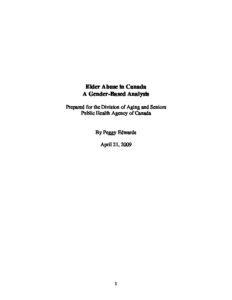 This paper provides a contextual gender-based analysis (GBA) related to elder abuse in Canada by exploring and documenting what is known and not known about the gender dimensions of elder abuse. It provides guidelines for creating bias-free, gender- and culturally-relevant research, policies and practices in elder abuse. Finally, it describes the relevance and application of the findings to public health research, policies, programs and practices, including gender-based indicators for incorporation into the evaluation of the Federal Elder Abuse Strategy.
This paper provides a contextual gender-based analysis (GBA) related to elder abuse in Canada by exploring and documenting what is known and not known about the gender dimensions of elder abuse. It provides guidelines for creating bias-free, gender- and culturally-relevant research, policies and practices in elder abuse. Finally, it describes the relevance and application of the findings to public health research, policies, programs and practices, including gender-based indicators for incorporation into the evaluation of the Federal Elder Abuse Strategy.
Download Report in English
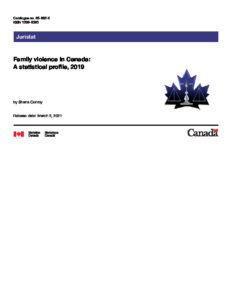 Family violence in Canada: A statistical profile is an annual report produced by the Canadian Centre for Justice and Community Safety Statistics at Statistics Canada as part of the Federal Family Violence Initiative. The 2019 edition of the report begins with an overview of police-reported family violence. The sections that follow present police-reported data dedicated to family violence against children and youth, intimate partner violence and family violence against seniors.
Family violence in Canada: A statistical profile is an annual report produced by the Canadian Centre for Justice and Community Safety Statistics at Statistics Canada as part of the Federal Family Violence Initiative. The 2019 edition of the report begins with an overview of police-reported family violence. The sections that follow present police-reported data dedicated to family violence against children and youth, intimate partner violence and family violence against seniors.
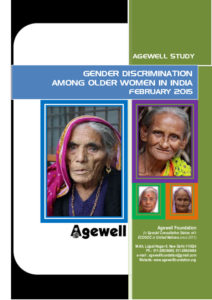 The Agewell Foundation conducted a nationwide survey to study the issues related to gender discrimination in old age in India. In view of the lack of core policies on the protection of rights of elderly women and the fast increasing population of elderly women, the study makes recommendations to policy makers, planners and decision-makers so that the rights of elderly women can be respected at all levels. Accordingly standard social, legal, policy framework could be developed to protect their rights and interests.
The Agewell Foundation conducted a nationwide survey to study the issues related to gender discrimination in old age in India. In view of the lack of core policies on the protection of rights of elderly women and the fast increasing population of elderly women, the study makes recommendations to policy makers, planners and decision-makers so that the rights of elderly women can be respected at all levels. Accordingly standard social, legal, policy framework could be developed to protect their rights and interests.
Download Report in English
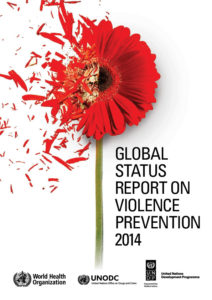 The report, the first of its kind, reflects data from 133 countries to take stock of how governments are making a difference, by assessing the measures countries are taking to prevent and respond to interpersonal violence. The report also reveals gaps in global violence prevention that must be filled: gaps in knowledge about the extent of the problem; in the quality and reach of prevention programmes; in access to services for victims; in the enforcement of existing laws; and in mechanisms to coordinate multisectoral work.
The report, the first of its kind, reflects data from 133 countries to take stock of how governments are making a difference, by assessing the measures countries are taking to prevent and respond to interpersonal violence. The report also reveals gaps in global violence prevention that must be filled: gaps in knowledge about the extent of the problem; in the quality and reach of prevention programmes; in access to services for victims; in the enforcement of existing laws; and in mechanisms to coordinate multisectoral work.
Download Report in English
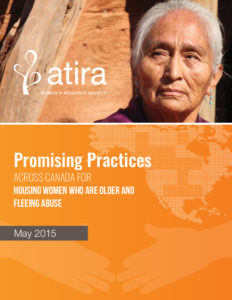 Promising Practices across Canada for Housing Women who are Older and Fleeing Abuse will benefit organizations that have developed or are developing safe, supportive housing specifically for women who are older. As well, Promising Practices will assist those who are exploring how to adapt their programs to be more responsive and inclusive of women who are older. Ultimately, women who are older will benefit from these promising practices, which reflects women’s stories, honours their experiences, both positive and
Promising Practices across Canada for Housing Women who are Older and Fleeing Abuse will benefit organizations that have developed or are developing safe, supportive housing specifically for women who are older. As well, Promising Practices will assist those who are exploring how to adapt their programs to be more responsive and inclusive of women who are older. Ultimately, women who are older will benefit from these promising practices, which reflects women’s stories, honours their experiences, both positive andDownload Report in English
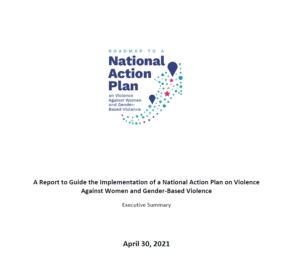 The report identifies existing federal and provincial/territorial policies, action plans, strategies, and legislation that may be affected by or used as the basis for national legislation on VAW. This report offers a starting point for discussion about a comprehensive strategy for developing Canada’s first National Action Plan on violence against women.
The report identifies existing federal and provincial/territorial policies, action plans, strategies, and legislation that may be affected by or used as the basis for national legislation on VAW. This report offers a starting point for discussion about a comprehensive strategy for developing Canada’s first National Action Plan on violence against women.
Download Report in English
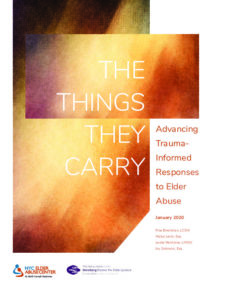 In October 2018, Weill Cornell Medicine’s NYC Elder Abuse Center (NYCEAC) and The Harry and Jeanette Weinberg Center for Elder Justice at the Hebrew Home at Riverdale (Weinberg Center) convened experts from across the country with deep knowledge and experience in subjects spanning neuroscience and geriatrics, innovative trauma therapies and public policy to begin to answer an overarching question: What do professionals across disciplines and systems need to know about trauma and its effects on older adults to be able to identify individuals in need and help them to heal?
In October 2018, Weill Cornell Medicine’s NYC Elder Abuse Center (NYCEAC) and The Harry and Jeanette Weinberg Center for Elder Justice at the Hebrew Home at Riverdale (Weinberg Center) convened experts from across the country with deep knowledge and experience in subjects spanning neuroscience and geriatrics, innovative trauma therapies and public policy to begin to answer an overarching question: What do professionals across disciplines and systems need to know about trauma and its effects on older adults to be able to identify individuals in need and help them to heal?
The report contains recommendations from experts who charted a course for advancing responses to elder abuse that are informed by the manifestations and consequences of trauma and promising strategies for healing. Specific recommendations were developed in four overlapping domains: education and training, professional practice, research, and policy.
The publication culls information and insights from the symposium, along with source materials provided by participants, as context for the recommendations.
Download Report in English
Government Strategies
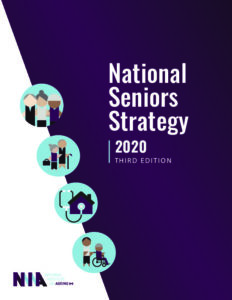 In the five years since the publication of the 2015 National Senior Strategy, notable progress has been achieved by federal and provincial/territorial governments, but old challenges remain, and new ones have emerged. With the population ageing faster than ever before, health care, social services, and economic systems must be continuously reviewed to ensure that they can remain sustainable and continue to meet the needs of all Canadians as they age.
In the five years since the publication of the 2015 National Senior Strategy, notable progress has been achieved by federal and provincial/territorial governments, but old challenges remain, and new ones have emerged. With the population ageing faster than ever before, health care, social services, and economic systems must be continuously reviewed to ensure that they can remain sustainable and continue to meet the needs of all Canadians as they age.
Download Report in: English
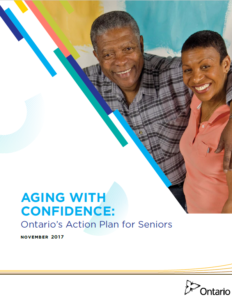 Aging with Confidence: Ontario’s Action Plan for Seniors (2017) outlines our government’s ongoing plan to help Ontario seniors remain independent, healthy and socially connected at all stages of their lives. The new investment of $6.7 million over 3 years will support efforts to educate, train and better support abused older adults
Aging with Confidence: Ontario’s Action Plan for Seniors (2017) outlines our government’s ongoing plan to help Ontario seniors remain independent, healthy and socially connected at all stages of their lives. The new investment of $6.7 million over 3 years will support efforts to educate, train and better support abused older adults
Indigenous Communities
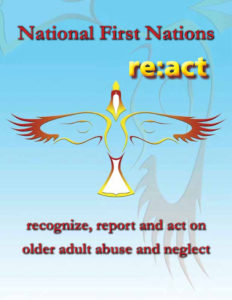 This manual has been produced to assist educators, facilitators, Community Health and Human Service Workers, First Nation Community Members, Health Authority Staff, Community Response Network (CRN) Members and a wide range of adult learners to understand the complex dynamic of abuse, neglect and self-neglect of vulnerable adults and older adults in First Nations communities, and to learn the roles and responsibilities of:
This manual has been produced to assist educators, facilitators, Community Health and Human Service Workers, First Nation Community Members, Health Authority Staff, Community Response Network (CRN) Members and a wide range of adult learners to understand the complex dynamic of abuse, neglect and self-neglect of vulnerable adults and older adults in First Nations communities, and to learn the roles and responsibilities of:
- Community Health and Human Service Workers
- Designated Agencies (Health Authorities, Adult Protection Services)
- Community Response Networks (CRN’s)
- Police & Victim Services
- Public Guardian & Trustee Offices
in preventing and responding to the mistreatment and abuse of older and vulnerable adults
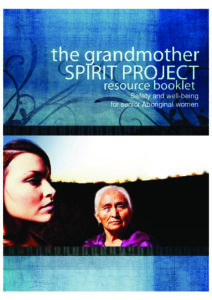 This resource book is intended to help raise awareness of issues of senior abuse in the lives of senior Aboriginal women, their families and communities. It is meant to help promote the safety and well-being of our seniors and Elders, both women and men, and to honour them as they would be traditionally.
This resource book is intended to help raise awareness of issues of senior abuse in the lives of senior Aboriginal women, their families and communities. It is meant to help promote the safety and well-being of our seniors and Elders, both women and men, and to honour them as they would be traditionally.
Download Report in: English
International
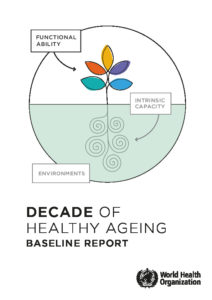 The Decade of Healthy Ageing will focus on four key actions: changing how we think, feel and act towards age and ageing; developing communities in ways that foster the abilities of older people; delivering integrated care and primary health services that are responsive to the needs of older people; and providing older people who need it with access to long-term care. All are critical for building back better, and for fostering healthy ageing.
The Decade of Healthy Ageing will focus on four key actions: changing how we think, feel and act towards age and ageing; developing communities in ways that foster the abilities of older people; delivering integrated care and primary health services that are responsive to the needs of older people; and providing older people who need it with access to long-term care. All are critical for building back better, and for fostering healthy ageing.
Download Report in: English
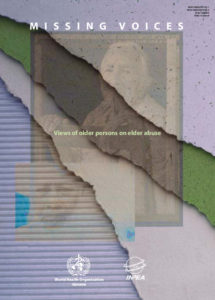 A study (2002) from eight countries: Argentina, Austria, Brazil, Canada, India, Kenya, Lebanon and Sweden. This World Health Organization report presents the design and findings of the study, and the conclusions of a meeting aimed at identifying the indications for policy, research and action emerging from these study findings. Reports from each country, prepared by the national teams, were reviewed and analysed.
A study (2002) from eight countries: Argentina, Austria, Brazil, Canada, India, Kenya, Lebanon and Sweden. This World Health Organization report presents the design and findings of the study, and the conclusions of a meeting aimed at identifying the indications for policy, research and action emerging from these study findings. Reports from each country, prepared by the national teams, were reviewed and analysed.
Download Report in English
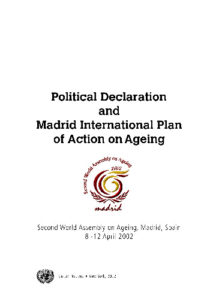 The first United Nations World Assembly on Ageing was held in 1982. The United Nations Principles for Older Persons, adopted by the UN General Assembly in 1991,[11] were intended to provide guidelines regarding the entitlements of older persons. Signatory states were encouraged to incorporate those guidelines into national programmes, including legislation.
The first United Nations World Assembly on Ageing was held in 1982. The United Nations Principles for Older Persons, adopted by the UN General Assembly in 1991,[11] were intended to provide guidelines regarding the entitlements of older persons. Signatory states were encouraged to incorporate those guidelines into national programmes, including legislation.
Download Report in English
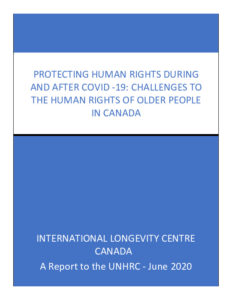 The most severe impact of COVID-19 in Canada is clearly seen in the diminishing recognition of the human rights of older people. The challenges Canada is facing, as illustrated by the rise in elder abuse, the patronizing ageist attitudes towards older people in the media and in our society, and the systemic problems in Long Term Care (LTC), have become more visible and urgent in the pandemic. ILC Canada shines a light on the need for a United Nations Convention on the Rights of Older People in Canada.
The most severe impact of COVID-19 in Canada is clearly seen in the diminishing recognition of the human rights of older people. The challenges Canada is facing, as illustrated by the rise in elder abuse, the patronizing ageist attitudes towards older people in the media and in our society, and the systemic problems in Long Term Care (LTC), have become more visible and urgent in the pandemic. ILC Canada shines a light on the need for a United Nations Convention on the Rights of Older People in Canada.
Download Report in: English
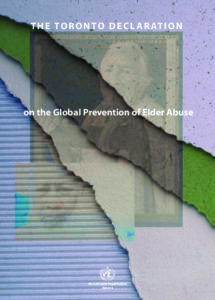 This declaration (2002) is a Call for Action aimed at the Prevention of Elder Abuse.
This declaration (2002) is a Call for Action aimed at the Prevention of Elder Abuse.
Download Declaration in English
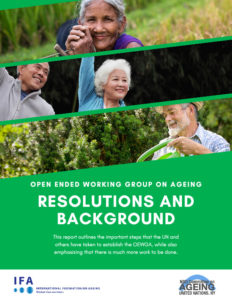 The OEWGA is a UN working group with the purpose of strengthening the protection of the human rights of older people around the world. This report provides evidence to urge governments resistant to mandating a Convention on the rights of older people to better understand the history and steps taken to strengthen the rights of older people.
The OEWGA is a UN working group with the purpose of strengthening the protection of the human rights of older people around the world. This report provides evidence to urge governments resistant to mandating a Convention on the rights of older people to better understand the history and steps taken to strengthen the rights of older people.
Download Report in: English
Prevalence / Statistics
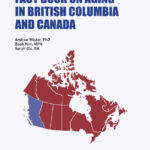
This 107-page monograph compiles the most up-to-date demographic, social and health data on older adults with comparisons between British Columbia and Canada, as well as historical patterns. Data are drawn from several sources, but primarily the 2021 Canadian census and BC STATS, and also supplemented with data from national health surveys, such as the Canadian Community Health Surveys, and other targeted surveys conducted in B.C.
Download Report in: English
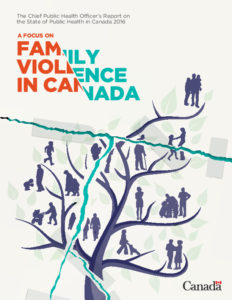 Despite the work of many researchers, health care professionals, organizations and communities, we still do not have a good understanding of why family violence happens, nor do we know how best to intervene. The report, indicates an estimated 766,000 or 8% of Canadians over the age of 55 years said they had experienced abuse or neglect from a family member in the previous year. This report explores why family violence is an important public health issue for Canadians.
Despite the work of many researchers, health care professionals, organizations and communities, we still do not have a good understanding of why family violence happens, nor do we know how best to intervene. The report, indicates an estimated 766,000 or 8% of Canadians over the age of 55 years said they had experienced abuse or neglect from a family member in the previous year. This report explores why family violence is an important public health issue for Canadians.
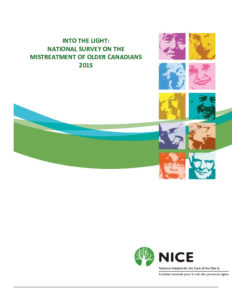 This study is one of the largest studies of a single country. Its goals:
This study is one of the largest studies of a single country. Its goals:
- To estimate the prevalence of five forms of mistreatment in a large, representative, nation-wide sample of community dwelling, older Canadians through direct respondent interviews;
- To estimate the risk factors (correlates) of elder abuse and neglect;
- To explore the relevance of life course conceptual framework to the study of elder mistreatment.
The report also draws conclusions based on the data and offers some implications for future elder abuse research and for services for maltreated older adults in Canada.
Download Report in: English
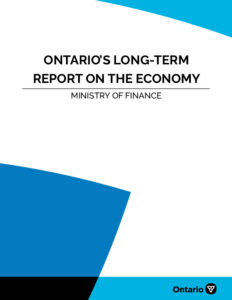 The chapter Demographic Trends and Projection in this report describes anticipated changes in Ontario’s population over the next quarter century. Over the projection period, the number of seniors is projected to almost double, from 2.5 million in 2019 to 4.6 million by 2046. The share of the provincial population that they represent will also rise, from 17 per cent to 23 per cent over the same period.
The chapter Demographic Trends and Projection in this report describes anticipated changes in Ontario’s population over the next quarter century. Over the projection period, the number of seniors is projected to almost double, from 2.5 million in 2019 to 4.6 million by 2046. The share of the provincial population that they represent will also rise, from 17 per cent to 23 per cent over the same period.
Download Report in: English
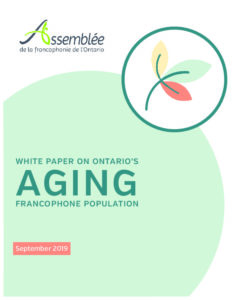 The White Paper on Ontario’s Aging Francophone Population was unveiled on the eve of the 2019 International Day of Older Persons by the Assemblée de la francophonie de l’Ontario (AFO) and its partner, the Fédération des aînés et des retraités francophones de l’Ontario (FARFO). The goal of the White Paper is to
The White Paper on Ontario’s Aging Francophone Population was unveiled on the eve of the 2019 International Day of Older Persons by the Assemblée de la francophonie de l’Ontario (AFO) and its partner, the Fédération des aînés et des retraités francophones de l’Ontario (FARFO). The goal of the White Paper is to
- provide the Franco-Ontarian community with an understanding of the current situation, strategic issues and measures to be taken to ensure the implementation of winning strategies for Ontario’s aging Francophone population;
- Stimulate strategic thinking to raise awareness and engage in substantive dialogue with political and governmental decision-makers;
- Define the steps required to implement concrete changes and mobilize all the necessary community resources.
Long-Term Care
The report, signed by B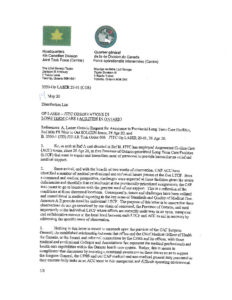 rigadier-General C.J.J. Mialkowski, details examples of the Canadian Armed Forces observations when called to help seven long-term care homes in Ontario with COVID-19 outbreaks (April 2020). The report revealed shocking and disturbing conditions in the homes including poor infection control, denial of food and rough treatment of residents, serious staffing shortages, shortages of personal protective equipment, and failures to follow safety protocols to keep residents and staff safe.
rigadier-General C.J.J. Mialkowski, details examples of the Canadian Armed Forces observations when called to help seven long-term care homes in Ontario with COVID-19 outbreaks (April 2020). The report revealed shocking and disturbing conditions in the homes including poor infection control, denial of food and rough treatment of residents, serious staffing shortages, shortages of personal protective equipment, and failures to follow safety protocols to keep residents and staff safe.
Download Report in English
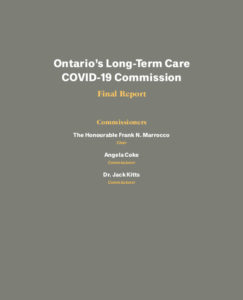 The provincial government created the Long-Term Care COVID-19 Commission in the summer of 2020, to investigate the cause of the spread of the virus in long-term care and how it affected residents, staff, volunteers and family members. The Commission’s purpose was to shine a spotlight on this tragedy, to determine its causes and to make recommendations to help prevent the future spread of disease in long-term care homes .
The provincial government created the Long-Term Care COVID-19 Commission in the summer of 2020, to investigate the cause of the spread of the virus in long-term care and how it affected residents, staff, volunteers and family members. The Commission’s purpose was to shine a spotlight on this tragedy, to determine its causes and to make recommendations to help prevent the future spread of disease in long-term care homes .
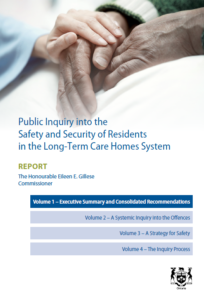 This Inquiry was established because of concerns for the safety and well-being of residents in long-term care homes in Ontario and those receiving publicly funded healthcare services in their homes. The recommendations that follow fulfill the Inquiry’s mandate to address the threat to resident and client safety posed by a healthcare serial killer such as Wettlaufer. They are effective, workable strategies to avoid similar tragedies through prevention, deterrence, and detection.
This Inquiry was established because of concerns for the safety and well-being of residents in long-term care homes in Ontario and those receiving publicly funded healthcare services in their homes. The recommendations that follow fulfill the Inquiry’s mandate to address the threat to resident and client safety posed by a healthcare serial killer such as Wettlaufer. They are effective, workable strategies to avoid similar tragedies through prevention, deterrence, and detection.
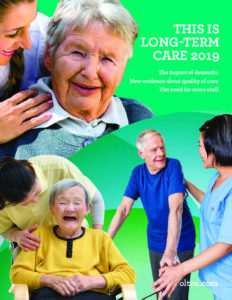 This report provides new evidence about the quality of care in Ontario’s long-term care homes, as well as key information and statistics about the resident population and how long-term care works.
This report provides new evidence about the quality of care in Ontario’s long-term care homes, as well as key information and statistics about the resident population and how long-term care works.
Download Report in: English
Social Isolation
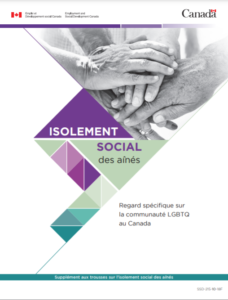 This supplement is a resource to help organizations and service providers adopt approaches to help lesbian, gay, bisexual, transgender, and queer (LGBTQ) seniors strengthen human connections. This resource will heighten awareness and sensitivity and help organizations address LGBTQ seniors’ particular social needs.
This supplement is a resource to help organizations and service providers adopt approaches to help lesbian, gay, bisexual, transgender, and queer (LGBTQ) seniors strengthen human connections. This resource will heighten awareness and sensitivity and help organizations address LGBTQ seniors’ particular social needs.
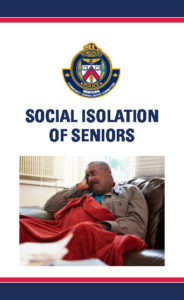 This resource primarily explores the experience of social isolation as it relates to older adults. The goal is to assist in the recognition of those at risk in the community, and to better equip individuals to help out.
This resource primarily explores the experience of social isolation as it relates to older adults. The goal is to assist in the recognition of those at risk in the community, and to better equip individuals to help out.
Download Report in: English
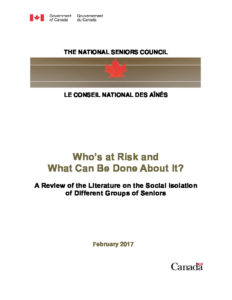 The current review looks at what the literature says about how different groups of vulnerable seniors are affected by social isolation and identifies promising interventions to tackle social isolation and reconnect seniors to their communities.
The current review looks at what the literature says about how different groups of vulnerable seniors are affected by social isolation and identifies promising interventions to tackle social isolation and reconnect seniors to their communities.
Download Report in English


